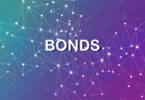In 2022, the DTCC, the world’s largest securities settlement organization, is launching a solution to digitize privately held stocks, which will optionally include blockchain security tokens. It will support Regulation A and D (unlisted) securities in the United States through issuance, distribution and secondary market trading.
A key motivation for the platform is the massive increase in trading in private securities. The aim is to automate and cut costs, and the ambition does not end at private stocks. In the future, the Digital Securities Management (DSM) Platform may also support funds, debt, real estate, loans and other assets.
“DSM is capable of transforming the private markets, unifying an increasingly fragmented space under a common infrastructure that can automate manual processes, reduce costs and risks, and open up more opportunities for investors,” said Jennifer Peve, DTCC Managing Director, Head of Strategy and Business Development.
In May 2020, the DTCC announced Project Whitney to explore tokenizing private securities on the public Ethereum mainnet. Since then, it consulted widely and now plans to launch a solution with tokenization only as an option. And even then, much of the legwork happens on a centralized system.
The reason for making tokenization optional is because “not all private market participants are prepared or able to transform their operating models at the same pace,” said the DTCC in a whitepaper.
The blockchain option
At the core of the DSM is a conventional relational database that stores securities data, investor and issuer registries, and the like. Industry users will link to the cloud-based system via APIs. If securities are not tokenized, settlement happens T+1, but security tokens can use on-chain payment. It’s unclear whether delivery versus payment is enabled, given the DSM is the master source.
For tokenization, integration is with Public Ethereum, but the design is blockchain agnostic and other DLTs, both public or private, will be added based on demand.
While the token contract will support some functionality such as transfers and the ability to query balances, the heavy lifting happens off-chain through the DSM, which functions as a blockchain oracle.
Certain Reg A or D issuances are only available to accredited investors, or in some cases, to mainstream investors, provided the amount is small. That checking process will happen via the DSM. We believe this means that investors will have to be registered on the DSM before buying stocks. That’s likely to mean users can only buy via a broker or exchange.
Token investors can hold tokens directly in wallets, but the DTCC is also applying to allow market participants to use the DSM to hold assets on behalf of clients.
Some interesting questions remain. For example, could security tokens be used in decentralized finance (DeFi)?. Strictly speaking, if one were to try to lend against a security token, that lending is also a security. So would the smart contract allow it? A key advantage of tokenization is to enable asset mobility and composability.
We’ve asked DTCC about some of these issues and will update the article when we receive a response.
Other DTCC blockchain activities
Meanwhile, this is one of several DTCC blockchain projects. Two other high profile ones are Project Ion for securities settlement and its Trade Information Warehouse for derivatives which is being revamped as a blockchain-based solution. The latter is the most ambitious as it supports trillions of transactions.
Earlier this year, the DTCC participated in a token interoperability trial that used FinP2P, which aims to link the various tokenization platforms together.






